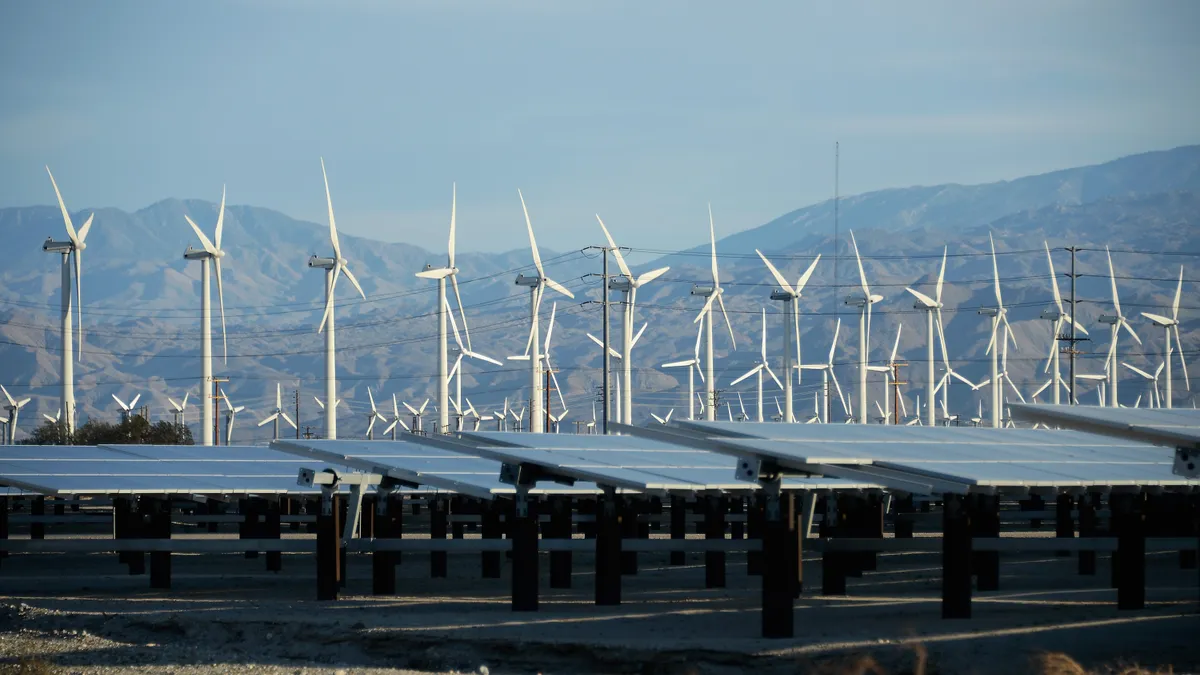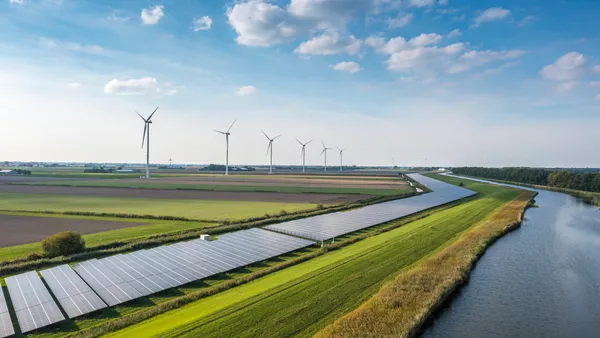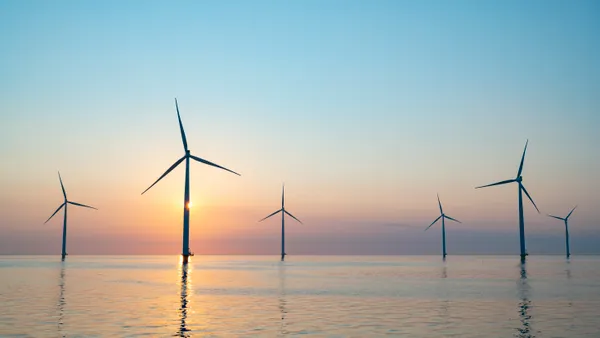Dive Brief:
- Corporations around the world purchased a record 31.1 GW of renewable energy in 2021, up 24% from the previous record of 25.1 GW in 2020, according to research from BloombergNEF.
- Relentless demand for renewable energy amid supply chain constraints and interconnection bottlenecks led to a 5.9% increase in average power purchase agreement (PPA) prices in the last quarter of 2021, according to data from the LevelTen Energy Marketplace.
- Growing competition among corporate buyers has also led to increased innovation in the procurement process — from more flexible PPA contracts to customers who are reconsidering the PPA itself.
Dive Insight:
Corporate buyers of renewable energy are changing their expectations of the process as the industry shifts into a seller's market.
Global corporate procurement set yet another record in 2021, and the pace isn't expected to slow in 2022 in spite of a continued upward trend in PPA prices. On top of the growing number of businesses setting clean energy goals — and expanding their goals from net zero emissions to 24/7 clean energy — demand for clean energy is still backlogged from 2020's Covid-19-related delays, according to Gia Clark, senior director of developer services for LevelTen Energy.
Yet at the same time, Clark said, "we are still very much in a supply-constrained environment....Projects are definitely still getting done, in a lot of ways because of contract innovation that's allowing for developers to accommodate some of these delays and risks."
One common contract arrangement, Clark said, is setting a range of potential completion dates instead of a single target date. Supply chain constraints have made it more difficult to meet specific targets, and missed deadlines often leave developers holding the bag. Increasingly, developers expect buyers to assume some of the risk associated with possible delays, Clark said.
The AES Corporation, which according to BloombergNEF sold more renewable energy to corporations than any other developer, has also seen a growing interest in 24/7 renewable energy products, according to Leonardo Moreno, president of AES Clean Energy, a business unit of AES. While the majority of companies continue to pursue net-zero targets, Moreno said, several large corporations that have already hit the net-zero benchmark, including Microsoft, announced 24/7 ambitions after Google unveiled its plan to power data centers with clean energy around the clock in late 2020.
"We want to accelerate the future of energy," Moreno said. "The future is not, some hours renewable, some hours coal. So we started to think about how to innovate around that and provide renewables all the time."
While challenging, the 24/7 target does come with some benefits in today's market, Moreno said. To achieve the goal requires a diverse portfolio of renewable energy resources and energy storage. By building a large portfolio and diversifying its supply chains, Moreno said, AES has been able to avoid supply-related delays.
Thinking outside the box and planning for the long-term — five to ten years in advance — is also critical to success in current market conditions, Moreno said. At LevelTen, Clark said most projects currently looking for contracts have completion dates in the 2023-2024 timeframe.
"If your company is setting targets for sooner than 2025, you need to be actively doing that now," Clark said.
CORRECTION: A previous version of this article misidentified the developer BloombergNEF ranked as the top in renewable energy sales to corporations in 2021. It gave AES that ranking, not its AES Clean Energy business unit.














